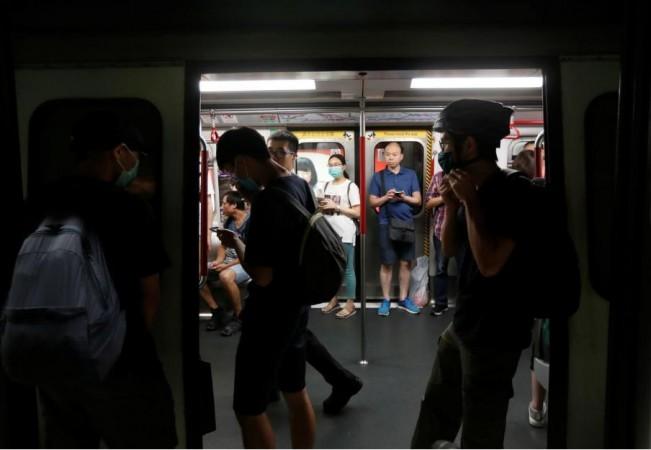
An estimated 200 flights were cancelled in Hong Kong on Monday, as a result of pro-democracy demonstrators calling a citywide strike. The city's Chief Executive, Carrie Lam, warned the demonstrations are heading towards "extremely dangerous situation".
Daily transport, including eight railway lines and the airport express, was affected as several protestors blocked trains from leaving stations on Monday morning. Bus and train services were subsequently suspended by officials.
Civil servants from more than 30 government departments as well as pilots, teachers, construction workers, engineers, and aviation staff have reportedly pledged to strike on Monday.
Carrie Lam, a pro-Beijing leader, condemned the protests and said that the demonstrations are affecting Hong Kong's economy and stability, in an official statement on Monday. This was the first statement she released in the last two weeks.
"Such extensive disruptions in the name of certain demands or uncooperative movement have seriously undermined Hong Kong law and order and are pushing our city, the city we all love, and many of us helped to build, to the verge of a very dangerous situation," said Carrie Lam.
More than 150 flights out of the city were cancelled on Monday morning. Around 100 outbound and 100 inbound flights were cancelled as citywide protests blocked roads, prompting shops and transport services to stay shut.
The protests intensified on Sunday after demonstrators and police clashed once again when a flashmob was held at the Causeway Bay. Other key areas such as the cross-harbour tunnel, which is a key link between Hong Kong Island, was blocked. A police station in the outer district of Kwun Tong was surrounded and protesters reportedly shined lasers at the police and threw bricks at the compound.
Violent activities such as breaking the windows of a police station in Hong Kong's New Territories and using makeshift means to launch objects at the administration was also reported on Sunday morning.
The riot police fired tear gas to disperse the demonstrators and over 44 people were arrested for participating in the demonstration.
On Saturday, a 36-year-old Filipino and a 26-year-old South Korean national was detained for taking part in the protests, according to the South China Morning Post. This was the first instance of foreigners being detained since the demonstration began.
Increasing tensions
Increasing incidents of demonstration-related violence have been reported in the last few weeks, as the government continues to maintain its silence in addressing the central demand of the protestors.
A complete withdrawal of the contentious extradition bill and an inquiry into the government's handling of the crisis has been demanded by the protestors.
The demonstration is also a broader political movement that questions Hong Kong's sovereignty against the increasing pro-Beijing government and the freedom of speech and expression of the citizens of the semi-autonomous city.
Lam said she had already responded to the protester's demands. "Some people may not agree with our response... but we have considered every factor. What is in front of us is Hong Kong's stability and future and escalated violence," she said.
Experts have claimed that the Hong Kong economy has suffered grave losses due to the protests, including its tourism industry, with falling hotel occupancy rates and markets.

















